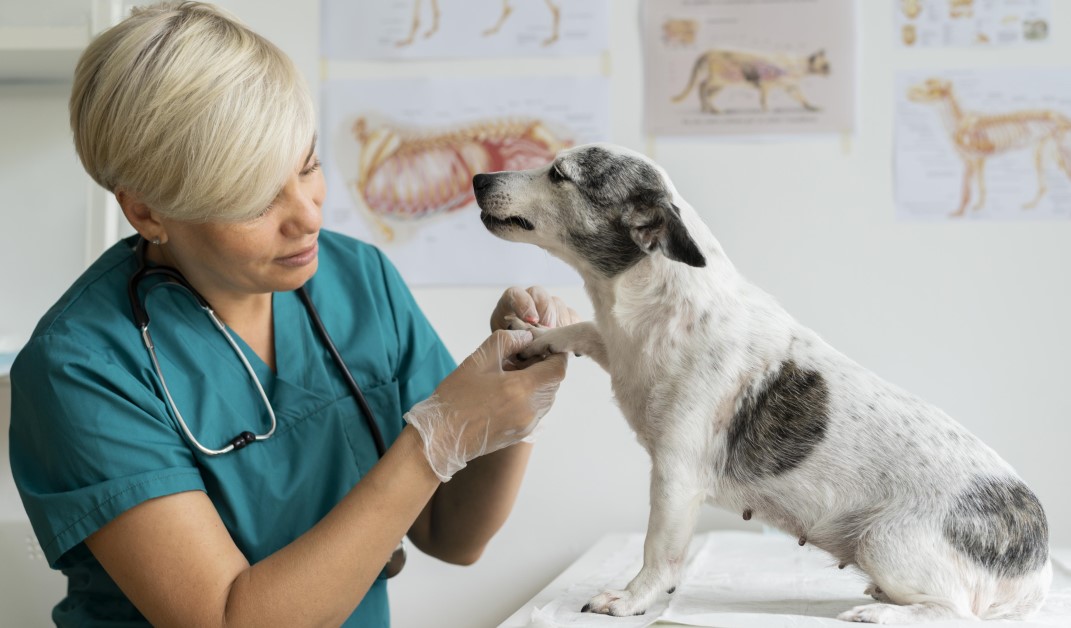How to Choose the Best Veterinarian for Your Pet
Find a 5-star vet for the animals in your life.

Choosing a vet for your pets is one of the most important decisions you will ever make for the animals you bring into your life. Your veterinarian will be vital in emergencies and when your pets get sick, and regular visits to your vet can help your pets live long, healthy, happy lives. The best time to find a veterinarian is before you need one—so here are 10 tips to help you make the right veterinary care choice for the animals you love.
1. Ask for Recommendations
If you acquire your pet from an animal shelter, they will have recommendations (and probably records) to get you started. You can also always ask a trusted friend who has the same kind of pet, as well.
An often overlooked source for veterinarians are professional animal breeders. The best breeders only work with veterinarians they trust - not just to keep their animals healthy, but to ensure the healthiest breeding lines. A professional breeder is sure to be an expert on veterinary care in your location.
2. Different Vets for Different Pets
There aren't a lot of general vets these days. Many vets treat primarily dogs and cats, while others will treat birds and small animals like rabbits and pocket pets. If you have an exotic pet, reptile, or arachnid, you will probably need a vet specializing in these species.Some vets also treat livestock, such as cattle, hogs, and sheep, while equine vets specialize in horses. Be sure the vet you plan to use treats your kind of pet.
When you have a pet with a known health concern, it also helps to have a relationship with a veterinarian who specializes in its treatment. There are vets who specialize in behavioral issues, cancer, animal reproductive health, and animal genetics.
3. Location
You probably don't want to drive two hours to get your dog treated for a snake bite, or a half a day to get your cat treated for fleas. Choose vets who have offices near you and have established a reputation in your local area. Some veterinary practices and animal hospitals operate from multiple locations. You may need to go to one location for routine pet wellness exams and shots, another location for spaying, neutering, and surgical procedures, and a third if your pet needs to stay in an animal hospital.
4. Scheduling & Emergency Vet Care
Some veterinary clinics offer 24/7 emergency care and welcome drop-in visits for pets that need immediate treatment. Other clinics may require you to call ahead to request an appointment, or book online on their website. Some animal hospitals offer appointments in the evening and on weekends, while others may be open just 9 to 5 on weekdays, and not on every weekday.
It’s usually a good idea to call ahead to confirm a clinic’s hours of operation to be sure it matches your schedule. You will be more likely to get your pets the veterinary attention they need if it is not a strain to make your appointment.
5. Accreditation
The American Animal Hospital Association (AAHA) accredits animal hospitals in the United States and Canada that have achieved excellence in all aspects of animal care, from animal surgery, to providing effective pain control, to veterinary recordkeeping. The AAHA develops their animal health care standards with input from industry experts, and provides resources for veterinary practices to keep up with the latest developments in veterinary medicine.
You can find AAHA-accredited veterinary clinics with the AAHA Pet Hospital Locator.
6. Overnight Care
Veterinarians can resolve most pet health problems during office visits. Sometimes, however, your pet will need veterinary hospital care overnight. While every vet has ways of providing your pet with the in-patient care needed for the best possible outcome, not every veterinary clinic maintains its own animal hospital. The veterinarian who takes care of your pet overnight may not be the same vet who takes care of them during the day.
Having to take your pet to an animal hospital is not always a bad thing. The night vet at a dedicated animal hospital may not have been working all day, and will have more time to devote to making sure your pet gets the best possible care. Animal hospitals have personnel, equipment, and experience that stand-alone veterinary clinics do not. But it is good to know where your vet will send you and your pet if hospitalization is ever necessary. (Also, see consideration #10, below.)
7. Size
It can be reassuring to take your pets to a small veterinary clinic where you see the same faces every visit. Your vet gets to know you and your pets, and, even more importantly, your pets learn to feel comfortable around your vet. Larger clinics, however, can offer a greater range of expertise, more advanced equipment, and more choices for making appointments and follow-up care.
8. Boarding, Grooming & Training
Some veterinary clinics offer additional services, such as boarding, grooming, and training. They may have weight clinics for cats, socialization classes for puppies, or owner training for exotic pets such as rabbits, ferrets, miniature pigs and horses, fish, and snakes.
9. Cost
Veterinary care can be quite expensive. Your vet should be able to tell you what prices to expect for routine visits, lab work, and special procedures. Some veterinarians offer concierge care, giving your pet complete treatment for a single monthly fee. At the very least, you should know payment options for regular wellness exams and vaccinations before choosing a vet or booking an appointment.
10. Pet Insurance
Many veterinarians now accept pet insurance, which can help offset the cost of care. There are also cost-effective alternatives to pet insurance, such as the Pet Assure Veterinary Discount Plan. Pet Assure now also offers Mint Wellness, a pet wellness plan that provides fast reimbursement for routine pet care that most traditional pet insurance plans won’t cover. Pet Assure can help you provide veterinary care for the pets you love.
Ready to start saving money on pet wellness care?
Then take a look at Mint Wellness, the pet wellness plan that provides fast reimbursement on routine pet care. Save on vaccinations, wellness exams, preventatives, dental, and more!
Learn More

